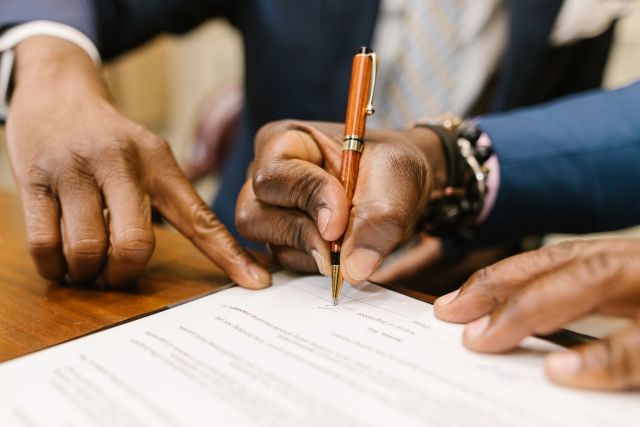Lawyer's Duty in Filing a Habeas Corpus Application Explained
Lawyer's Duty in Filing a Habeas Corpus Application Explained
Blog Article
Comprehending the Role of a Post-Conviction Lawyer in Looking For Justice After a Criminal Conviction
In the complicated landscape of post-conviction lawful process, the function of a post-conviction legal representative is essential in browsing the path to justice after a criminal sentence - federal habeas corpus north dakota. As the pursuit of justice expands past the boundaries of first process, the function of a post-conviction lawyer emerges as a beacon of hope for those looking for to rectify injustices and redeem their legal rights within the lawful system.
Post-Conviction Legal representative's Investigatory Job
Post-conviction lawyers take part in thorough investigatory job to discover new evidence, procedural mistakes, or misbehavior that might possibly bring about rescinding a sentence. This investigatory stage is vital in the post-conviction procedure as it aims to determine any type of forgotten details or lawful missteps that may have affected the end result of the initial trial. Post-conviction attorneys dive right into case data, witness testimonies, and legal paperwork with a fine-tooth comb, looking for any inconsistencies or abnormalities that might be premises for charm.
Via detailed examination, post-conviction attorneys aim to clarify prospective oppressions that might have taken place during the initial trial. They might conduct interviews, talk to experts, and evaluation forensic proof to construct an engaging case for their clients. By inspecting every facet of the lawful procedures, post-conviction attorneys work relentlessly to discover any variables that might have affected the judgment. Ultimately, their investigatory job plays a critical role in the pursuit of justice and the prospective reversal of wrongful convictions.
Crafting Appeals and Petitions
In the pursuit of justice after a conviction, proficient lawyers meticulously craft charms and applications to present compelling arguments for the reconsideration of legal decisions. Crafting charms and petitions needs a deep understanding of the legal system, attention to information, and calculated thinking. Post-conviction legal representatives examine trial records, determine prospective errors or violations of rights, and establish lawful disagreements to test the sentence or sentence.
When crafting an appeal, attorneys focus on highlighting lawful errors that might have influenced the end result of the case. They look into situation legislation, laws, and lawful precedents to support their disagreements. Petitions, on the various other hand, may entail offering brand-new proof that was not available during the test or showing modifications in the law that require a review of the conviction.
Moreover, post-conviction lawyers need to follow strict procedural policies and due dates when filing appeals and requests. They should present their debates plainly and persuasively to convince the court to grant relief to their clients. With precise crafting of allures and applications, post-conviction legal representatives strive to protect justice for individuals who have actually been wrongfully convicted or unfairly sentenced.

Pursuing Post-Conviction Relief
Looking for alleviation after a sentence requires a calculated and thorough approach by skilled attorneys. Post-conviction relief encompasses a series of lawful mechanisms made to challenge the legitimacy of a conviction or sentence (alabama federal habeas attorneys). These methods consist of submitting movements for a new test, pursuing charms, seeking writs of habeas corpus, and providing freshly found evidence. Post-conviction legal representatives play a crucial function in browsing these complex treatments, guaranteeing that all legal options are explored to rectify injustices that may have happened during the test or sentencing stage.
One common form of post-conviction relief is filing an application for post-conviction relief, usually based on insurance claims of inefficient aid of advise, prosecutorial misconduct, recently uncovered proof, or constitutional violations. These requests call for a detailed evaluation of the trial document, legal research study, and influential advocacy to convince the court to give relief. Experienced post-conviction attorneys have the skills and understanding essential to determine feasible legal claims, carry out investigations, and present engaging debates to secure relief for their clients. By vigilantly pursuing post-conviction alleviation, these attorneys strive to fix losing the unborn babies of justice and promote the concepts of justness and due process in the criminal justice system (Lawyer).
Utilizing Forensic Proof
When challenging a sentence or sentence, the calculated usage of forensic evidence can be a powerful device in post-conviction legal procedures. Forensic evidence includes a broad variety of scientific techniques utilized to examine criminal activities and establish realities in court. Post-conviction legal representatives can leverage forensic proof to challenge the validity of convictions by presenting brand-new clinical findings that were not offered during the original trial.

Taking Part In Sentence Modifications
Post-conviction attorneys might discover the possibility of sentence adjustments as a click resources legal avenue to address disproportionate or unfair sentences handed down in criminal instances. Sentence alterations include seeking changes to the terms of an accused's sentence after a sentence has occurred. These alterations can consist of reducing the length of a sentence, altering the sort of punishment enforced, or exploring alternate sentencing options.
Post-conviction legal representatives can pursue sentence adjustments with various lawful mechanisms, such as submitting movements for sentence reduction, appealing for compassionate launch, or bargaining appeal offers for decreased sentences. They must carefully evaluate the conditions of the situation, assess the legal grounds for looking for a modification, and existing engaging debates to the court supporting the requirement for a modified sentence.
Taking part in sentence adjustments calls for a detailed understanding of criminal law, punishing standards, and the particular procedures associated with seeking post-conviction alleviation. Post-conviction lawyers play a crucial function in promoting for reasonable and just outcomes by difficult sentences that are unduly severe or do not align with the principles of justice.
Final Thought
To conclude, the role of a post-conviction lawyer is vital in seeking justice after a criminal conviction. Via investigative job, crafting charms and petitions, pursuing post-conviction relief, utilizing forensic proof, and participating in sentence alterations, these lawful professionals play a crucial duty in advocating for their clients and guaranteeing that their rights are maintained within the criminal justice system. Their devotion and competence are important in browsing the intricacies of post-conviction process and accomplishing a fair outcome for individuals facing criminal convictions.
Report this page